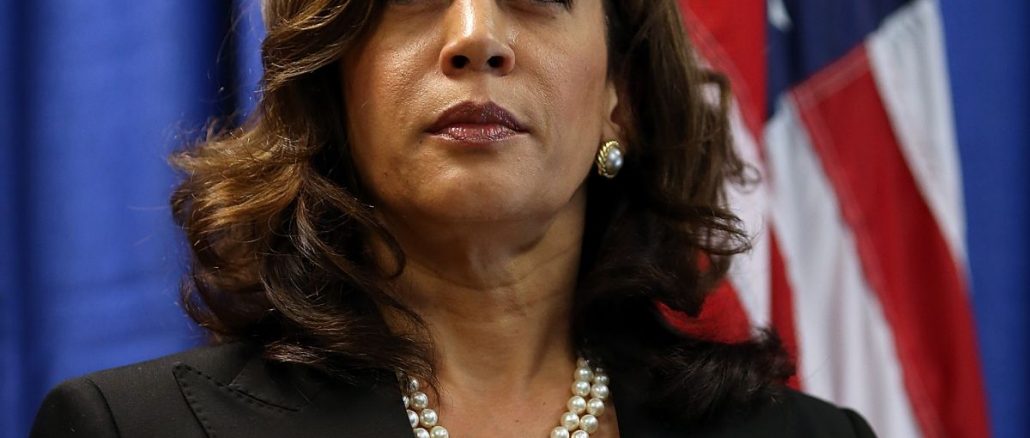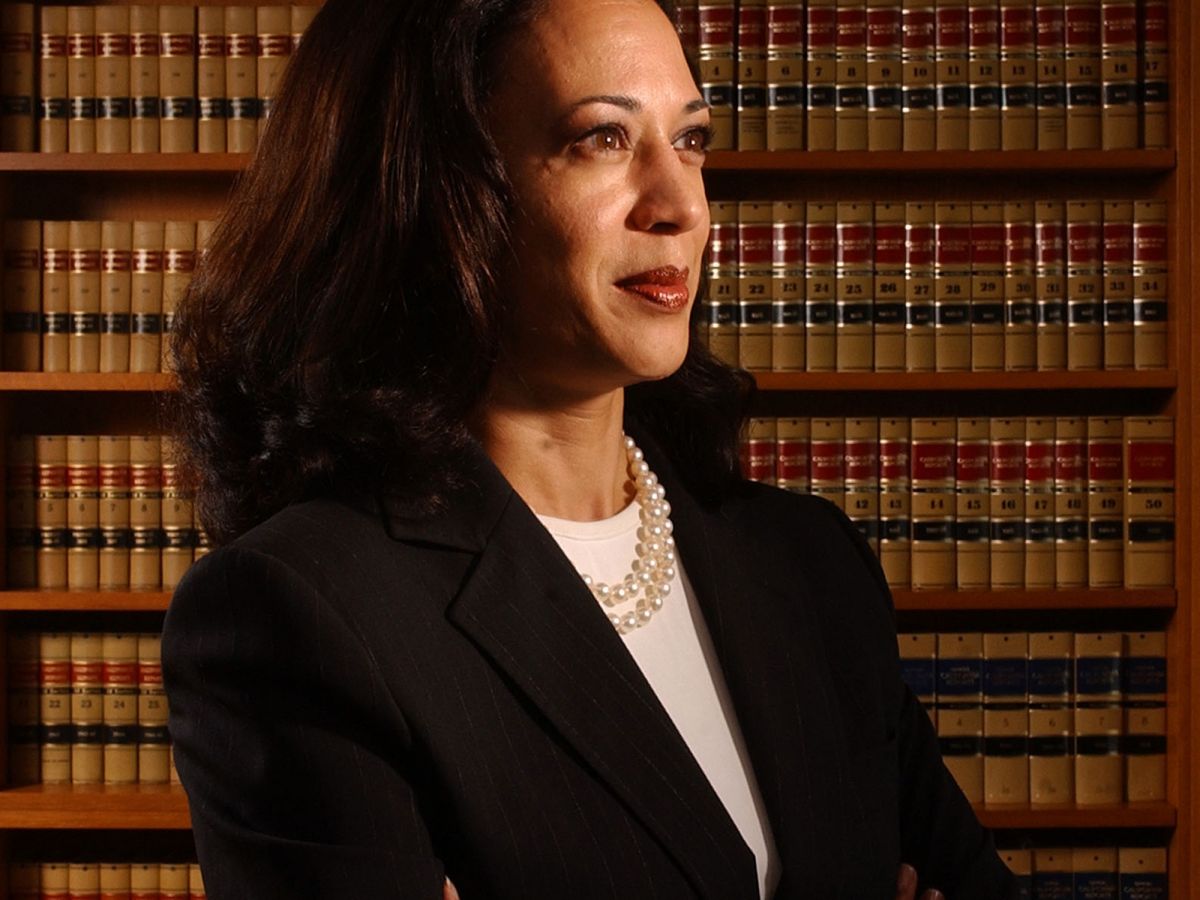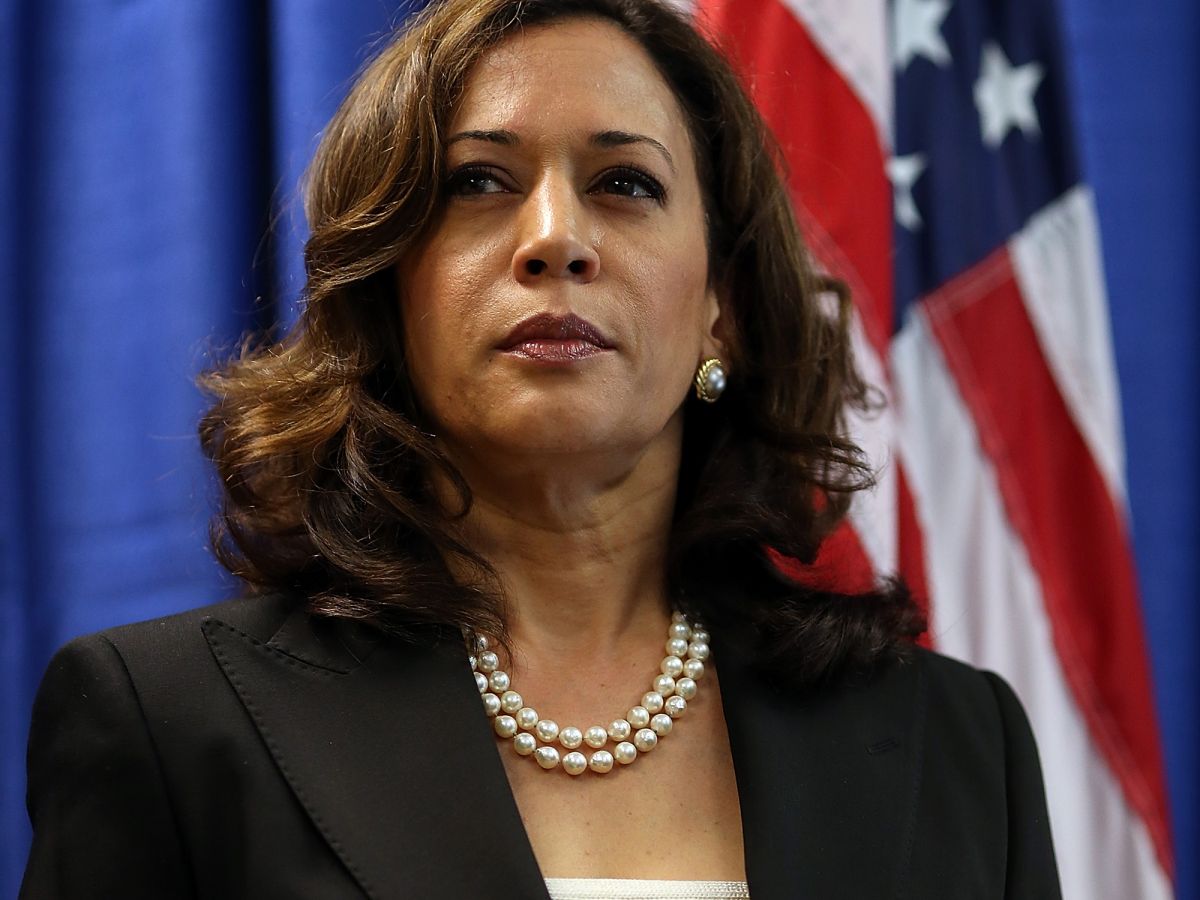
An issue that continues to come up during Sen. Kamala Harris’ presidential run is her legacy as a career prosecutor.
Harris and her supporters have touted her record as an asset, pointing to her prosecution of rapists, polluting oil companies, and banks that have defrauded homeowners. She has said she believes her experience within the criminal justice system has given her insight on how to reform it, and that it gives her an edge to take down President Donald Trump. But some on the left have found her record troubling, pointing to her decades-old anti-truancy program and other issues.
If chosen as the Democratic nominee, Harris would be the first Black woman and the first Asian-American woman to win a major-party nomination for the presidency. Some criminal justice advocates and Black activists believe Harris will also have to answer for her prosecutorial record during her time as district attorney of San Francisco and California attorney general. Meanwhile, Harris has said she knew her decision to become a prosecutor, period, would be controversial.
"There have been prosecutors that refused to seat Black jurors, refused to prosecute lynchings, disproportionately condemned young Black men to death row and looked the other way in the face of police brutality," she said at an NAACP event in South Carolina last month, according to Politico. "It matters who is in those rooms. I knew I had to be in those rooms. We have to be in those rooms even when there aren’t many like us there." When Harris became the DA in San Francisco, there were only three Black DAs in the entire country.
Ahead, we dig into the presidential hopeful’s record to determine whether she did, as she has said, act as a "progressive prosecutor" — a change agent within the system — or a tough-on-crime "cop." (Spoiler alert: It's somewhere in-between.)
Kamala Harris on the death penalty
Harris says she has “long been opposed to the death penalty,” although she was criticized for defending capital punishment in federal court as California attorney general.
As far back as 2003, during her campaign for San Francisco DA, Harris ran on an anti-death penalty platform. She fulfilled her promise by never seeking the death penalty as DA, including in the 2004 case against a man accused of killing police officer Isaac Espinoza. In 2010, Harris ran a successful campaign for California attorney general as the anti-death penalty DA.

Kamala Harris as San Francisco district attorneyPhoto: Marcio Jose Sanchez/AP/Shutterstock.
Did Kamala Harris punish parents for their children’s truancy?
During her time as DA, Harris began an anti-truancy initiative under which parents whose children regularly missed school could receive fines of $2,500 or more or face a year in jail, in extreme cases. The goal, she has said, was not to threaten all truant kids' parents with prosecution, but to escalate intervention in order to encourage parents to make sure their kids go to school. She has pointed to a statistical connection between kids missing school and being the perpetrator or victim of a crime.
In a 2010 speech at the Commonwealth Club in San Francisco, Harris said: "I believe that a child going without an education is tantamount to a crime, so I decided I was going to start prosecuting parents for truancy. Well, this was a little controversial in San Francisco." Harris has since said that she regrets the "unintended consequence " of the policy — the arrests and jailing of parents.
Kamala Harris' Back on Track initiative for nonviolent offenders
As DA of San Francisco in 2004, Harris championed the Back on Track initiative, a program designed to give first-time drug offenders opportunities to get high school diplomas and jobs rather than serve prison time — at a time when criminal justice policy was trending toward a more “tough on crime” mentality. The reentry program, one of the first in the country, never went large-scale and only served 300 people, The Atlantic reported, however, it’s viewed as a blueprint for progressive prosecutorial policy and was imitated in other parts of the country.
Kamala Harris on police body cameras and accountability
As California attorney general, Harris didn’t support a state-wide regulation for police use of body cameras, a move that was criticized by Black Lives Matter activists. "I as a general matter believe that we should invest in the ability of law enforcement leaders in specific regions and with their departments to use…discretion to figure out what technology they are going to adopt based on needs that they have, and resources that they have," Harris said at the time. "So, I don’t think we can have a one-size-fits-all approach to this." Harris has acknowledged that Black and brown people have reason to distrust law enforcement, as they've been systematically targeted by the criminal justice system.
Kamala Harris on LGBTQ+ rights
As DA, Harris opposed two anti-marriage equality propositions. It was during this time that Harris created a Hate Crimes Unit that focused on prosecuting hate crimes against LGBTQ+ children and teens in schools. As attorney general, a bill co-sponsored by Harris made California the first state to ban the “gay/trans panic” defense in criminal cases.
As San Francisco’s District Attorney, I helped make California the first state to ban the “gay/trans panic” defense, which was often used to justify horrendous violence against the LGBTQ+ community. It’s time we pass the bill to ban it nationwide.
— Kamala Harris (@KamalaHarris) June 3, 2019
However, some have questioned her record on transgender prisoners' rights. In 2015, she challenged a federal court order to provide an incarcerated transgender woman named Michelle-Lael Norsworthy with gender reassignment surgery, arguing that it wasn’t medically necessary. More recently, the presidential hopeful suggested that staff in her office might have written decisions she didn't agree with, adding, however, that she takes "full responsibility."
“[T]here are unfortunately situations that occurred where my clients took positions that were contrary to my beliefs," Harris said in a January news conference at Howard University, her alma mater. "And it was an office with a lot of people who would do the work on a daily basis, and do I wish that sometimes they would have personally consulted me before they wrote the things that they wrote? Yes, I do. But the bottom line is the buck stops with me, and I take full responsibility for what my office did."

Kamala Harris as California attorney generalPhoto: Justin Sullivan/Getty Images.
Kamala Harris on the decriminalization of nonviolent offenses like sex work and marijuana
Recently, Harris has stated support for the decriminalization of sex work, but in 2015 she argued for criminalization, saying that “prostitution is linked to the transmission of AIDS and sexually transmitted diseases.” In 2016, as California attorney general, she arrested and charged the CEO and shareholders of Backpage, a website popularly used to sell sex, with felony charges including pimping and conspiracy to commit pimping. Sex workers and advocates have argued that the shutdown of sites like Backpage can threaten sex workers' livelihoods and safety.
Views can and do change throughout a career, though, like Harris’ stance on marijuana legalization. In 2010, she expressed opposition to it, but has come to support medicinal and recreational marijuana use over time. Now, she wants to expunge all nonviolent marijuana-related offenses from people’s criminal records — and admitted to smoking it herself in college on The Breakfast Club radio show in February.
"I think it gives a lot of people joy," she told host Charlamagne tha God. "And we need more joy in the world."
Click HERE to read more.
You can publish this article on your website as long as you provide a link back to this page.

Be the first to comment